With search engines evolving every day, is finding keywords still relevant? Can you rank on Google without using keywords? If yes, then why is keyword research important for SEO?
There used to be days when using a keyword several times in a content piece would rank it on Google. Many bloggers used keyword stuffing to rank for many terms and drove organic traffic because it worked well.
Not anymore. Why? Because Google noticed many low-quality sites use keyword stuffing to manipulate search rankings. Google is determined to provide high-quality search results. So they improved the algorithms.
Today Google punishes sites that stuff keywords.
That’s why I have a better way to phrase the question: with stuffing as a negative factor, are keywords still important for SEO?
Yes.
Why?
You may or may not use keywords in your content, but it’s still a good practice because keyword research will help you in many other ways.
In this post, you’ll learn the other benefits of keyword research.
Want to save this pin for later?

This post may contain some affiliate links that is I may earn a small commission at no extra cost to you that I would use to maintain this blog. Thanks for understanding.
Why is Keyword Research Important for SEO?

Keyword research is the process to:
a) find the exact words or phrases that your audience uses to find answers to their questions
b) validate them to see if they’re suitable for your blog
c) filter out terms not good for your business.
You already know that finding and using keywords in your content can increase your chance of ranking on Google. Below are some other benefits you might not know about:
#1 Understand search intent
Keyword research helps you understand the user’s intent for searching.
Search intent is the why behind a query. You want to figure out why the user did this search to create a blog post that better answers the question.
In its search quality evaluator guidelines, Google has said that search intent is essential to determine users’ needs. Understanding search intent helps in providing the best solution.
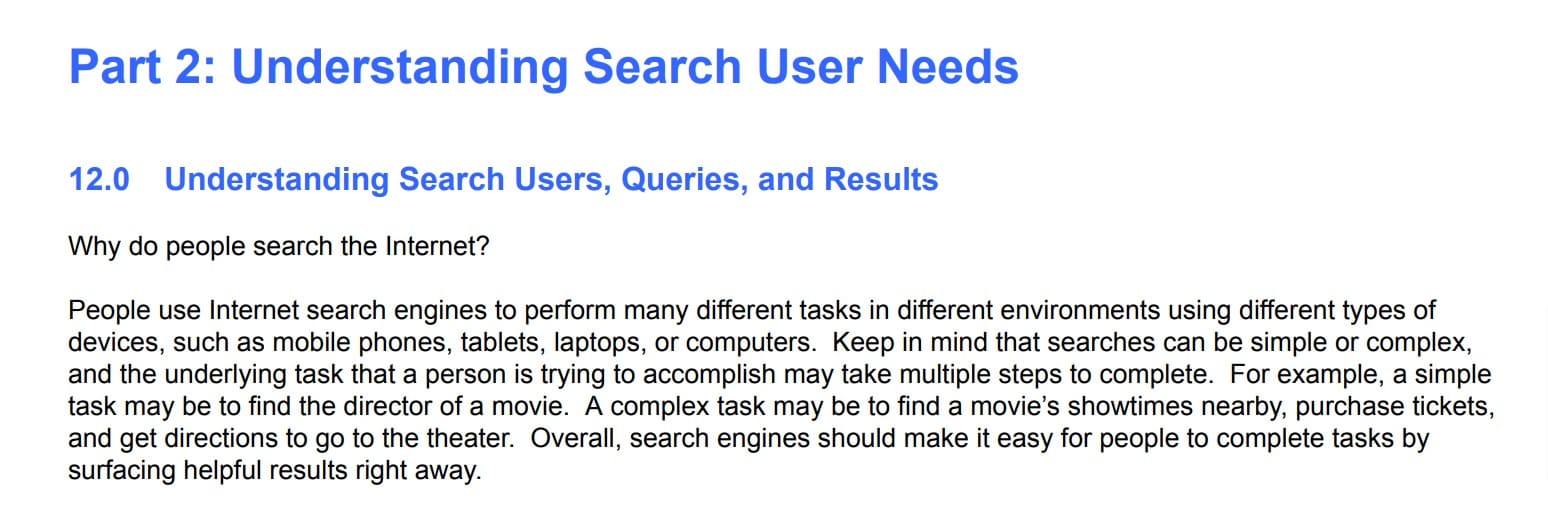
- Some intents are informational (the user wants to learn something),
- Some are commercial (the user wants to buy something),
- Others are navigational (the user wants to navigate to the right website).
It’s essential to provide the answer that matches the search intent behind the keyword. Think about how annoying it would be when you want to learn about different coffee beans, but all you get are purchase links from different sites.
Google wants to prevent this frustration.
Keyword research and SERPs help in figuring out the search intent. Let me show you how.
The keyword “what is keyword research” shows results with information intent. Notice that all ranking posts are teaching what keyword research is and how to do it.

But the intent behind “keyword research tool” is commercial because all ranking sites are selling their free keyword research tool to upsell the premium version later.
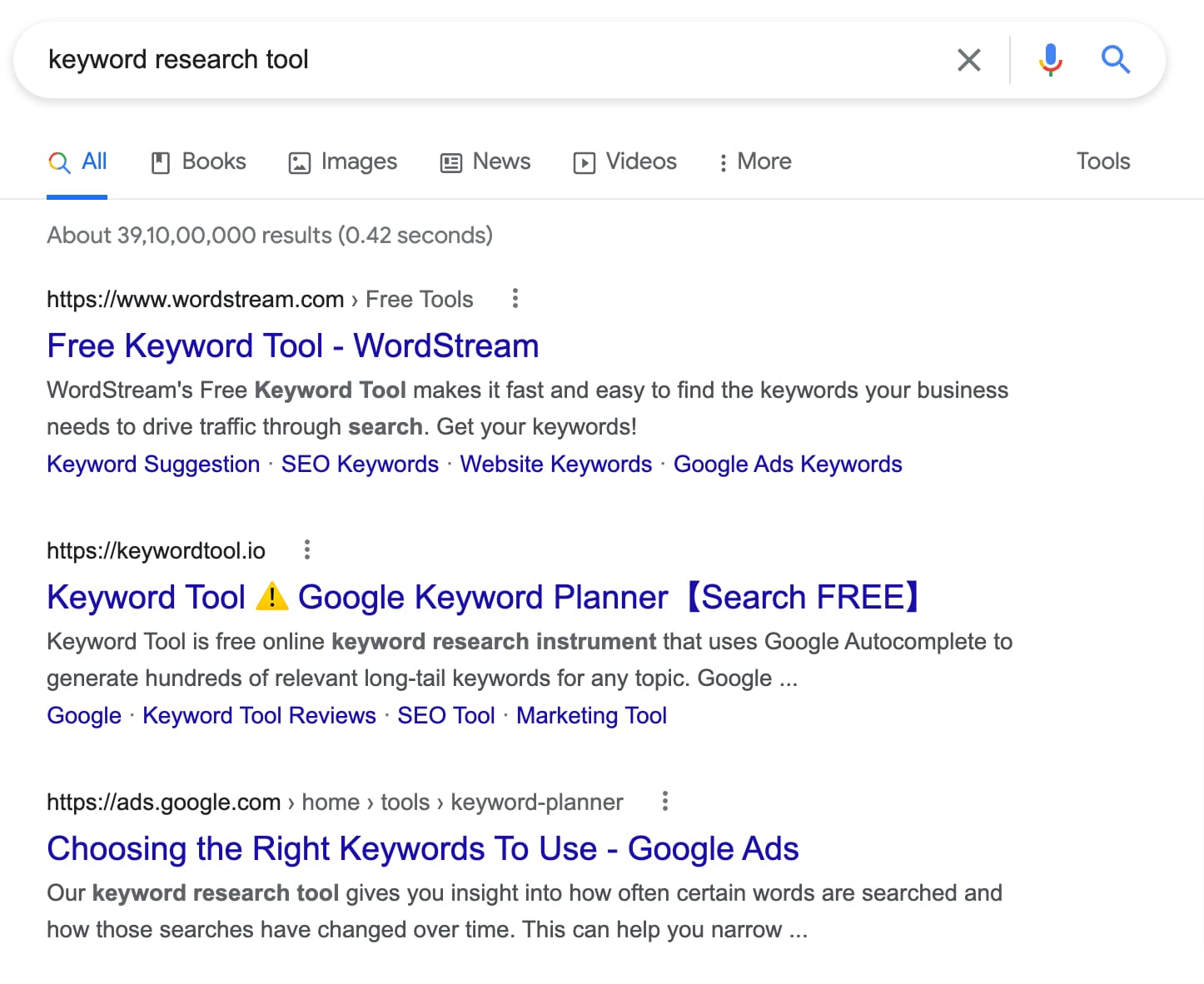
And the term “keyword research tools” has navigational intent because most ranking posts are list posts with links to other keyword tools.
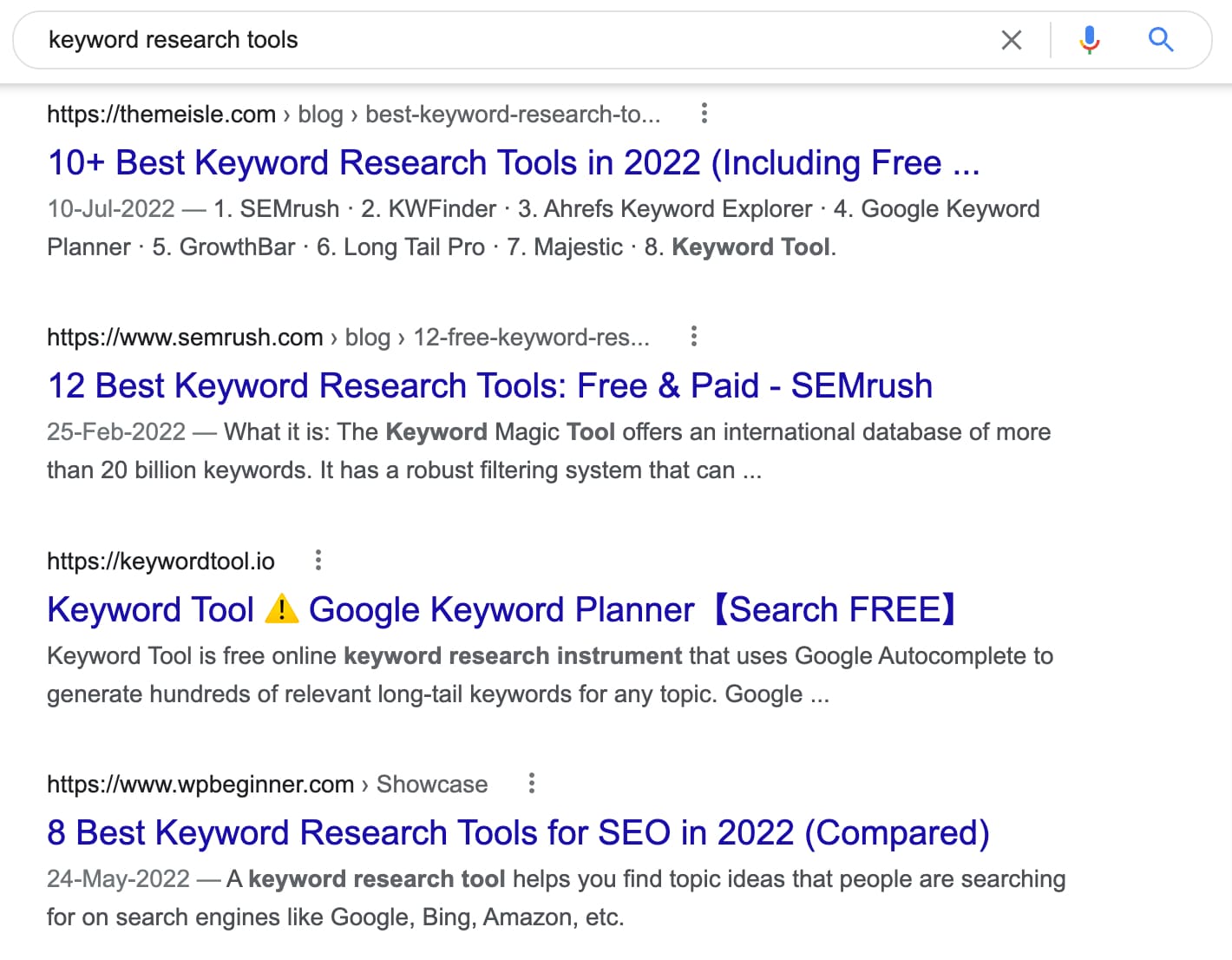
Of course, this method is unclear, but you can always use a keyword research tool to find the search intent.
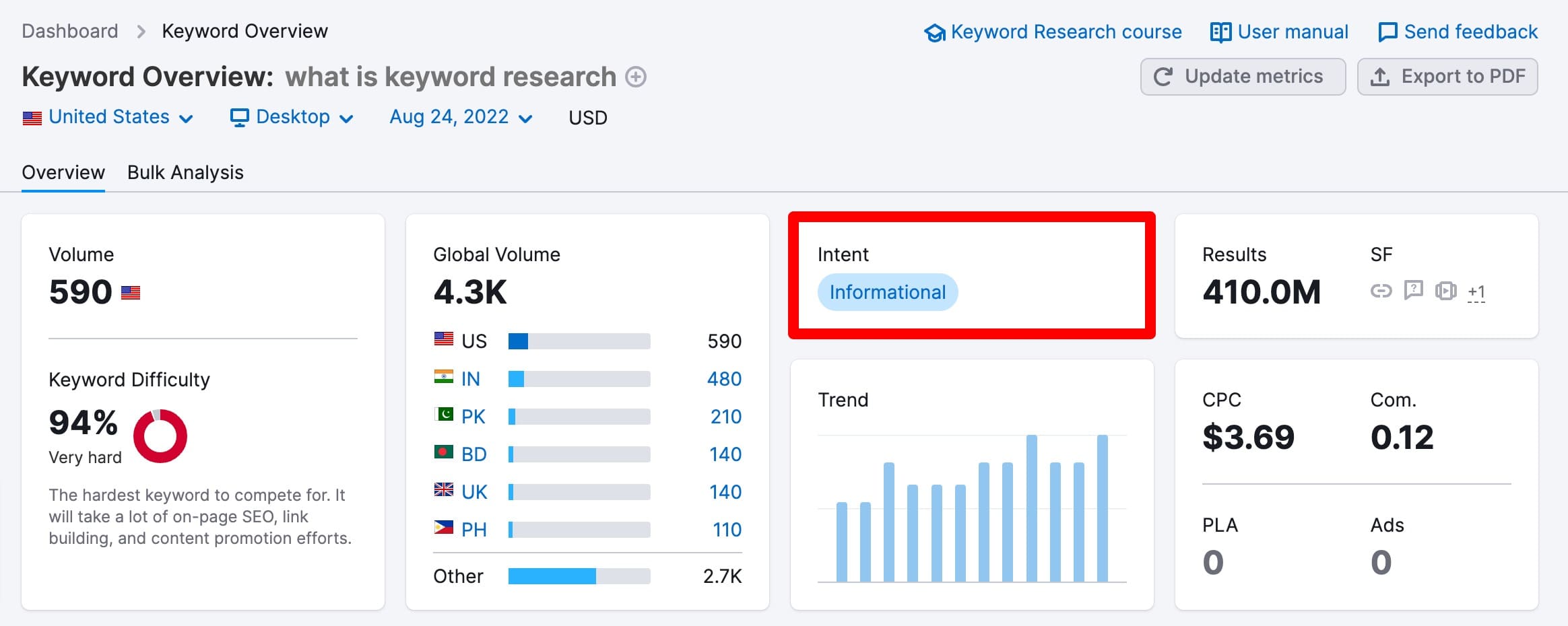
You can create content that helps your target audience by matching the search intent. And by using keyword research, you can figure out search intent.
#2 Figure out your audience’s problems
Keyword research is a great way to determine your target audience’s problems. Ideally, you want to find significant problems in your niche and create content pieces to solve them.
For example, suppose you’re a food blogger. In that case, keyword research will tell you that 68k people globally are searching for the term “beef and broccoli recipe.”
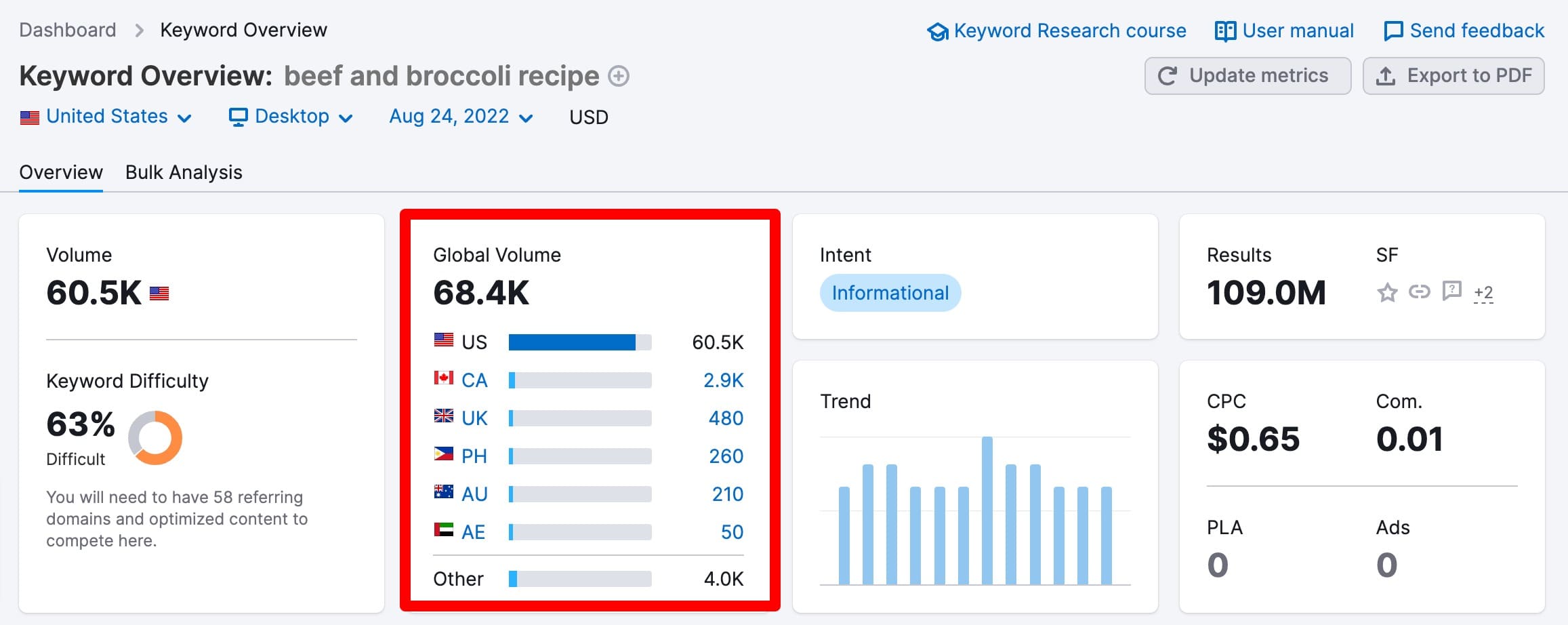
Many people are searching for this term which means if you create a blog post on this topic – it’ll solve a big problem.
More than that, keyword research helps you avoid questions that no one asks. You don’t want to publish content that no one wants to learn.
For example, no one searches for the keyword “best summer strawberry recipes.”
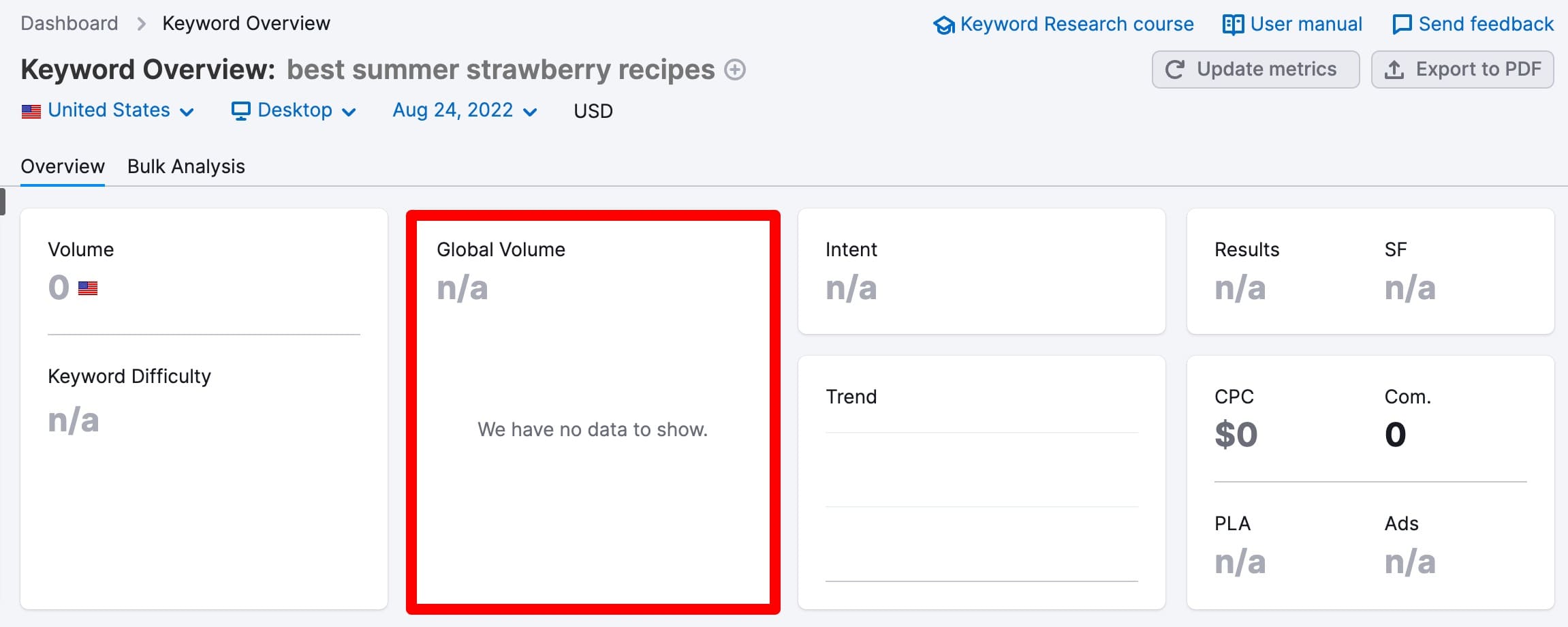
If you create a recipe post on this topic, no one will read it, and your efforts are wasted. Keyword research helps you avoid such situations.
#3 Find easy-to-target content opportunities
There are many good keywords to target, but not all will help you with your goals. For example, if your niche is marketing, then keywords related to the food niche aren’t suitable for your target audience.
Then there are competitive keywords you can’t rank as a new website because established sites with high authority already rank for them.
Check out this graph by SEMrush to understand different types of keywords.
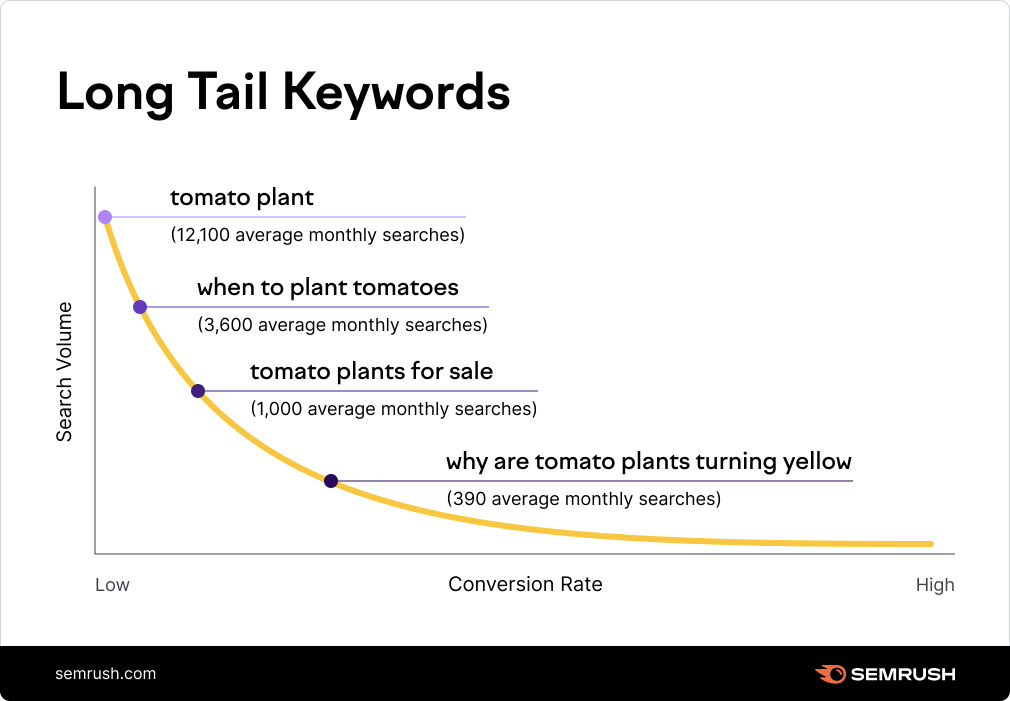
To rank your new website on Google, it’s better to initially target long tail keywords because they are easy to rank online.
Using a keyword research tool, you can find long-tail keywords that don’t have much competition. For example, the keyword “top keyword research tools free” is an easy keyword to target as it has zero keyword difficulty.
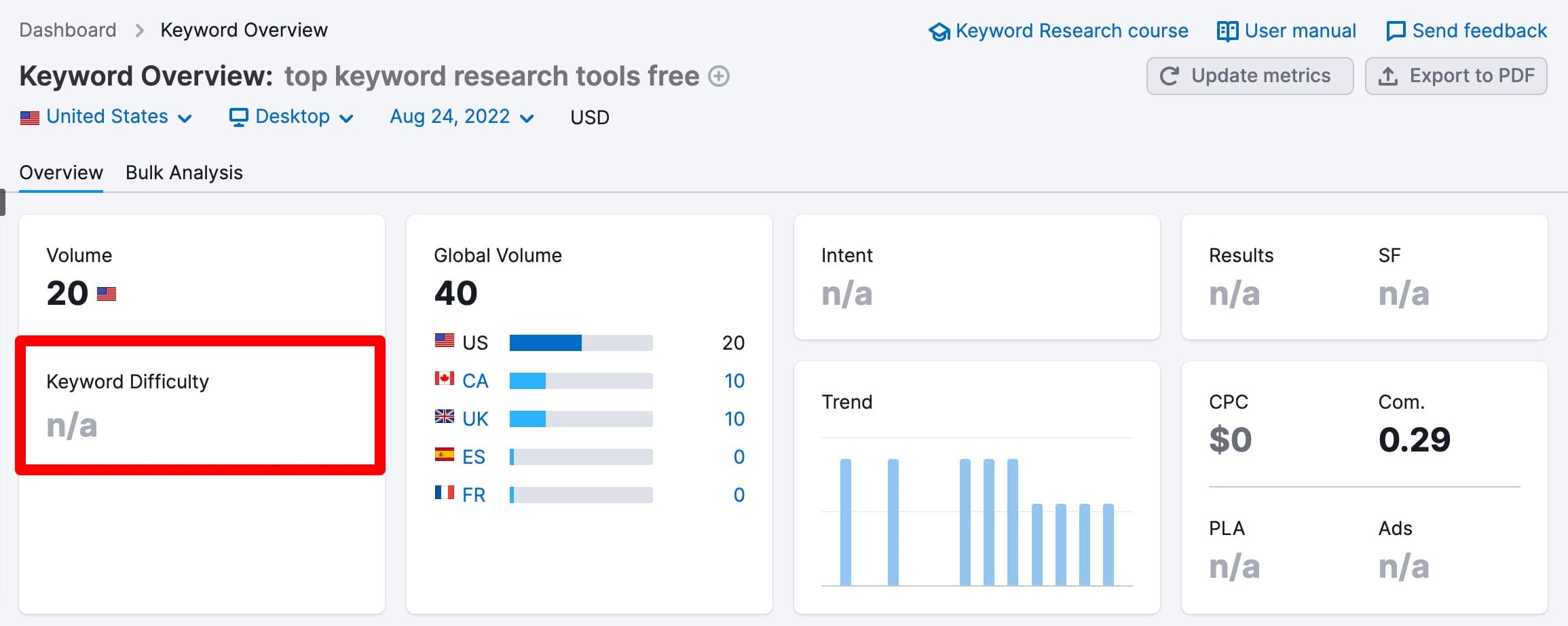
While the term “keyword research tools” is a competitive keyword with a KD of 88%. Many high authority sites are probably already ranking for this keyword. So, it’s not a good keyword for a new website.
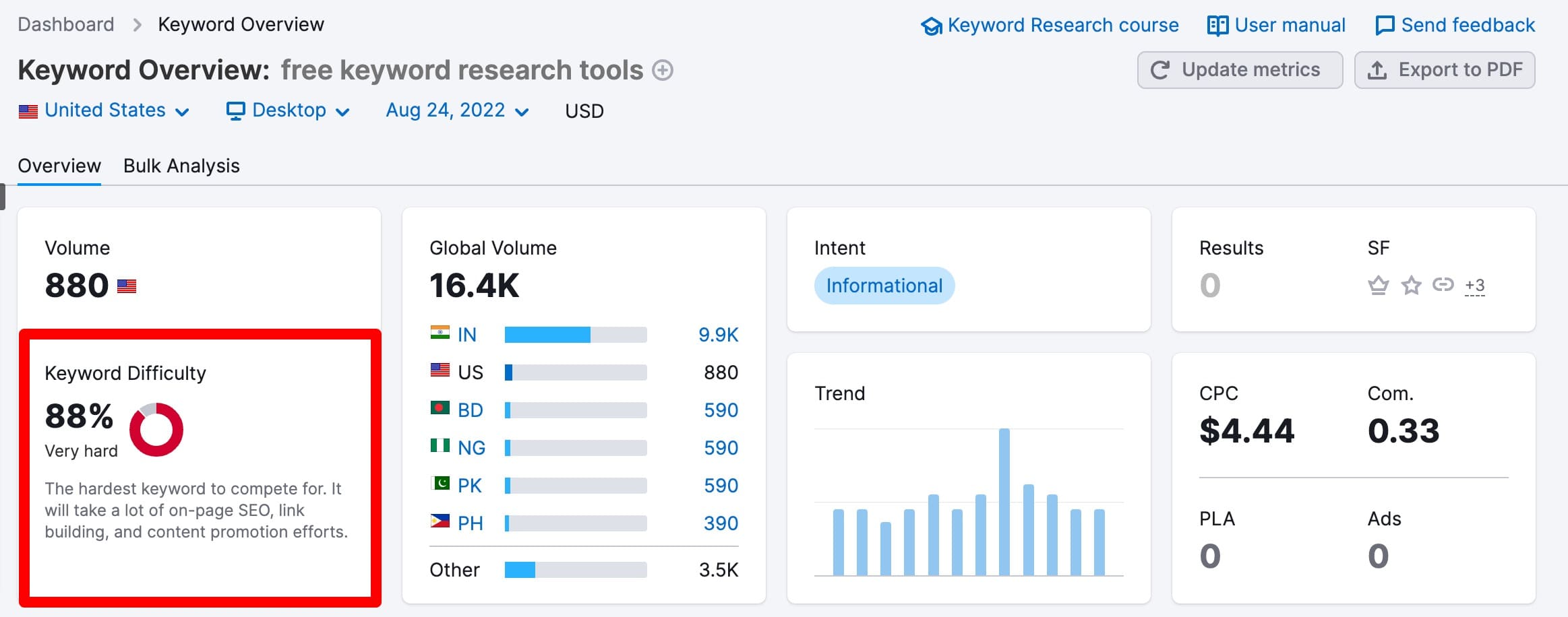
You must be wondering why not target competitive keywords; they have high traffic. It’s because no matter how hard you try, you can’t outrank big sites.
These big sites have been creating high-quality content for years, and Google trusts them. But your site is new, so it’ll take time for Google to trust you.
You have to build that trust by ranking for many less-competitive keywords.
#4 Create a content strategy
Keyword research helps you create a content strategy to get results. Just like finding easy-to-target keywords and audience problems, you can find enough content ideas to create a content strategy for your blog.
You can start with a simple Google search to find more content ideas. For example, if I want to create a vegan recipe blog, I would search “vegan recipe” on Google.
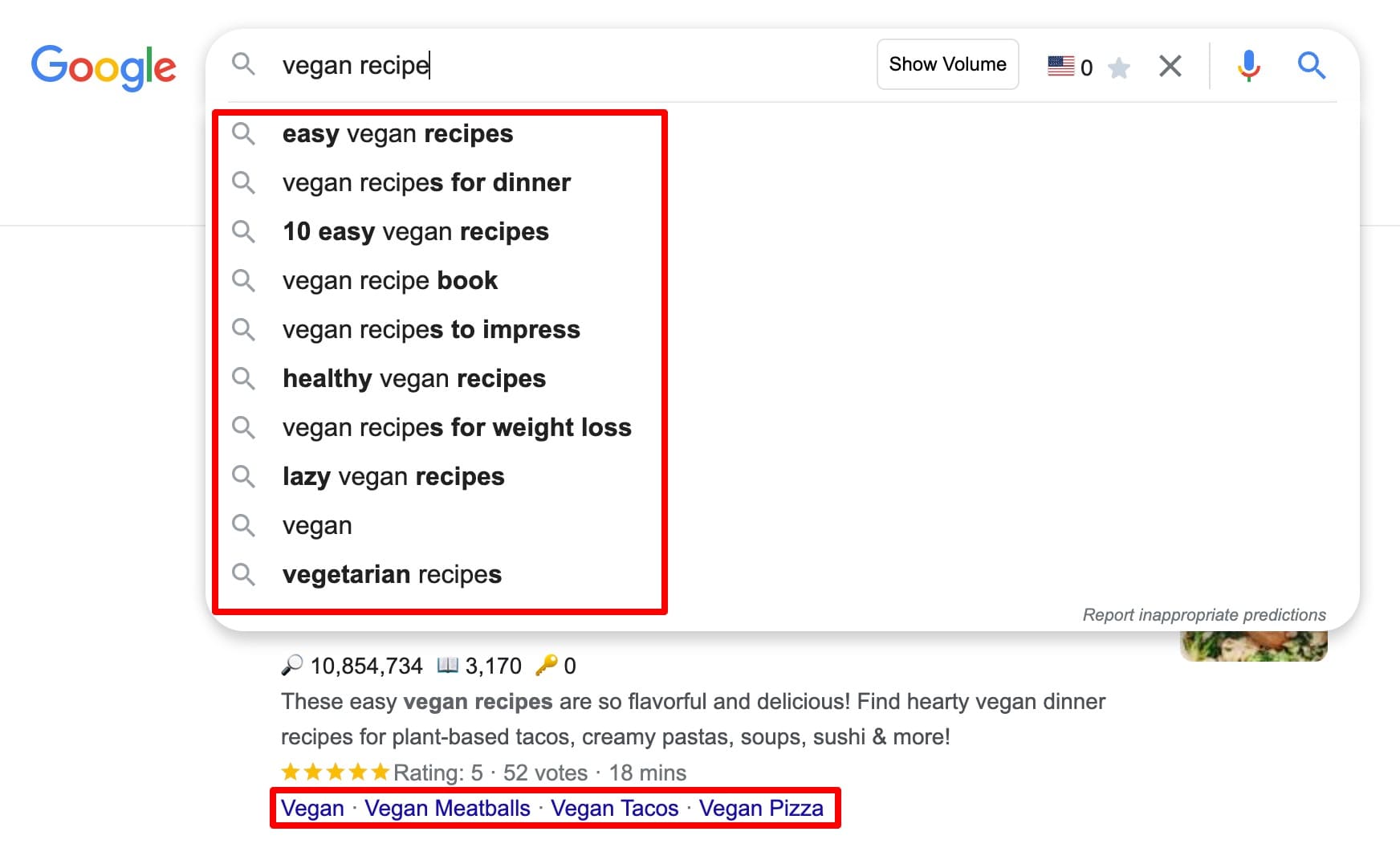
Google will show me other popular search terms related to our keyword. I can add these terms to my content ideas list.
I can repeat the search with a different term to find more ideas. And I’ll keep doing that until I have enough ideas to prepare a content strategy.
Later, with the help of a keyword research tool, I can analyze each keyword for difficulty, traffic, etc., to see if it’s a good keyword to target.
You should also check out the trend section to determine the best time to get maximum engagement in your content.
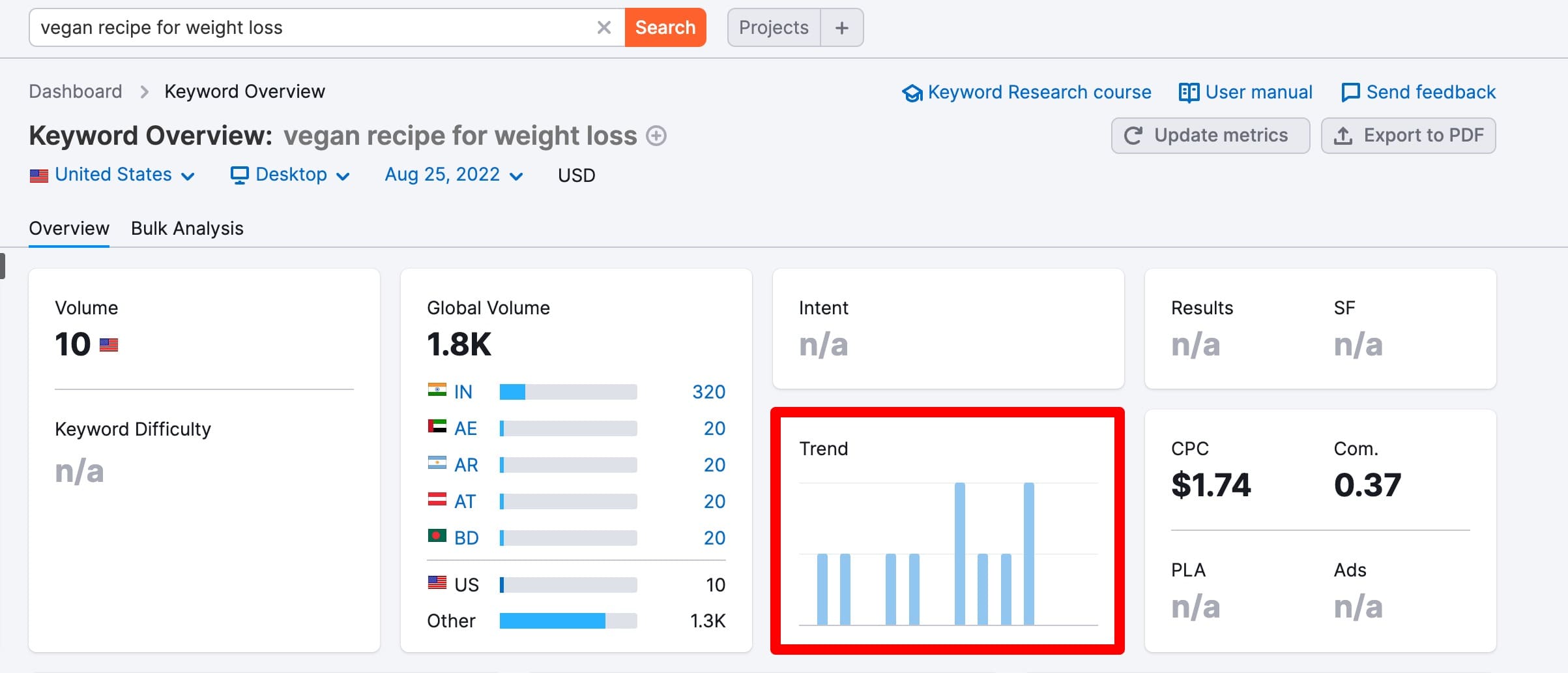
Once you have the data, you can group similar keywords and arrange them based on their best time of getting maximum engagement.
#5 Assess your competition
The best advantage of keyword research is to steal your competitors’ keywords.
Do you know what the most uncomplicated keywords to target are?
That’s right, your competitor’s keywords.
Not sure who your competitor is?
A competitor’s website is similar to yours regarding the target audience, blog niche, etc., but slightly better. They have a higher domain authority than your site.
Targeting competitors’ keywords is easy and proven.
- Easy because your competitor ranks for the keyword, you can also rank if you create a better blog post.
- Proven because your competitor has already done the research; if it’s a good keyword for his audience, that means it’s good for you too.
Using a keyword research tool like SEMrush, you can easily find keywords your competitor is ranking. Let’s take Amazon as our example. Here are all the keywords Amazon is ranking.
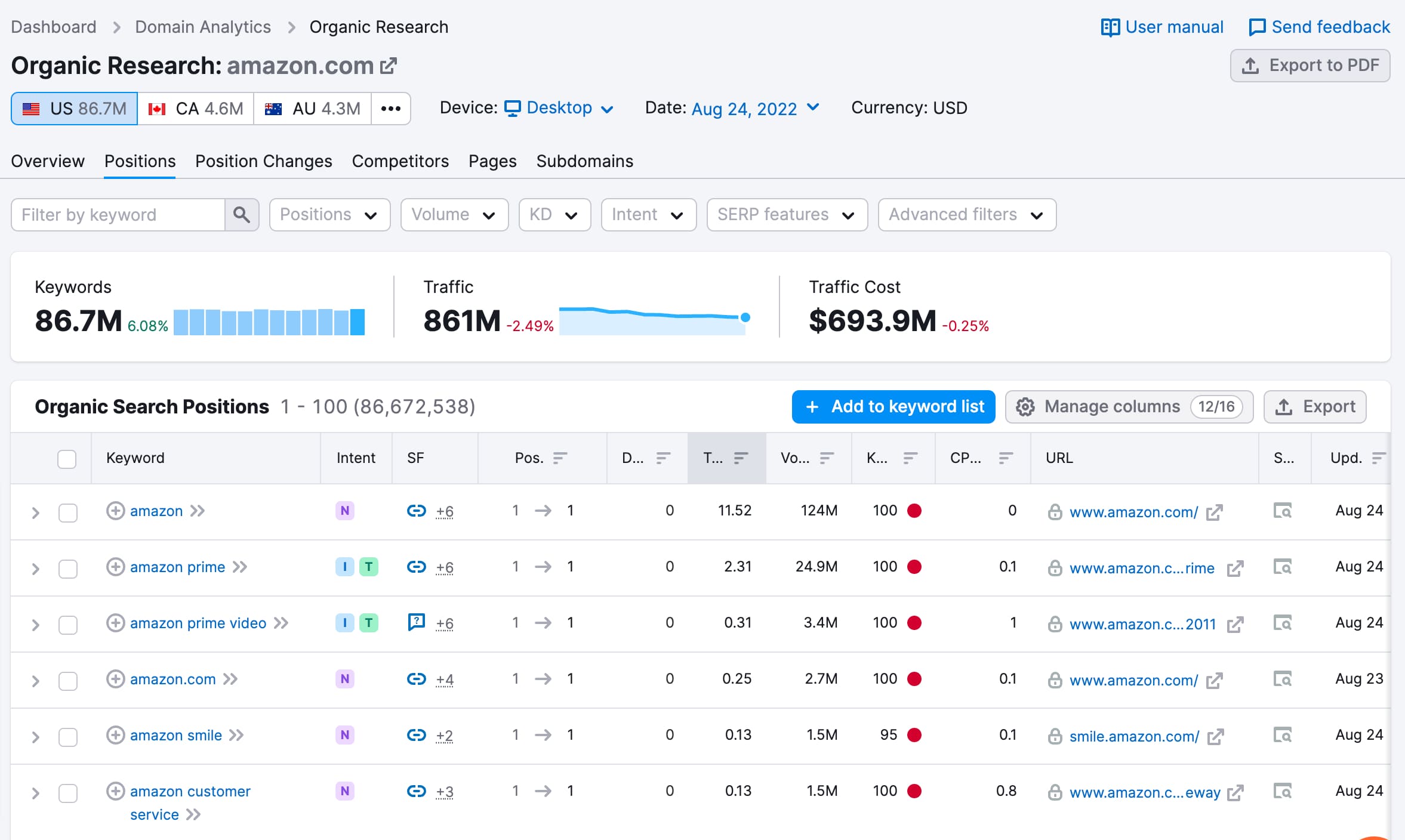
You can use keyword research to find your competitor’s keywords and target them for better results.
#6 Get new content ideas
If you research regularly, you discover hidden keyword opportunities you haven’t covered before.
Let’s get back to our example of starting a vegan recipe blog.
Suppose I want to write a recipe post on my new blog. I’m researching to find an easy-to-target keyword. I will analyze SERPs to see already ranking pages.
I will scroll down to the “People also ask” section and get new content ideas to publish on my blog.
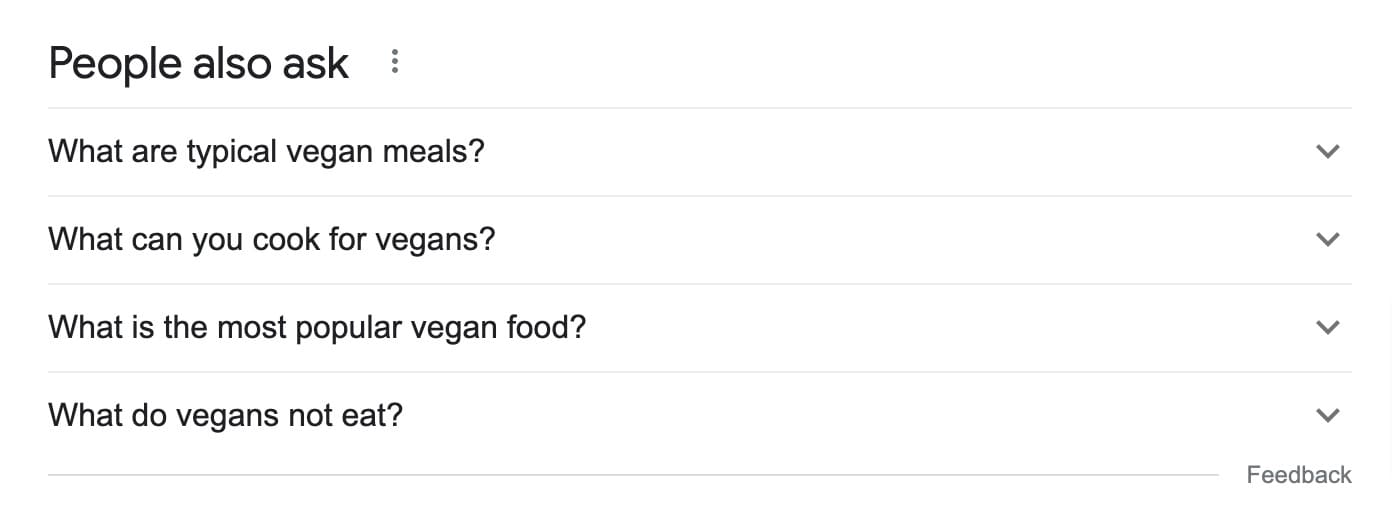
I can scroll down to the “Related” action to uncover more content ideas.
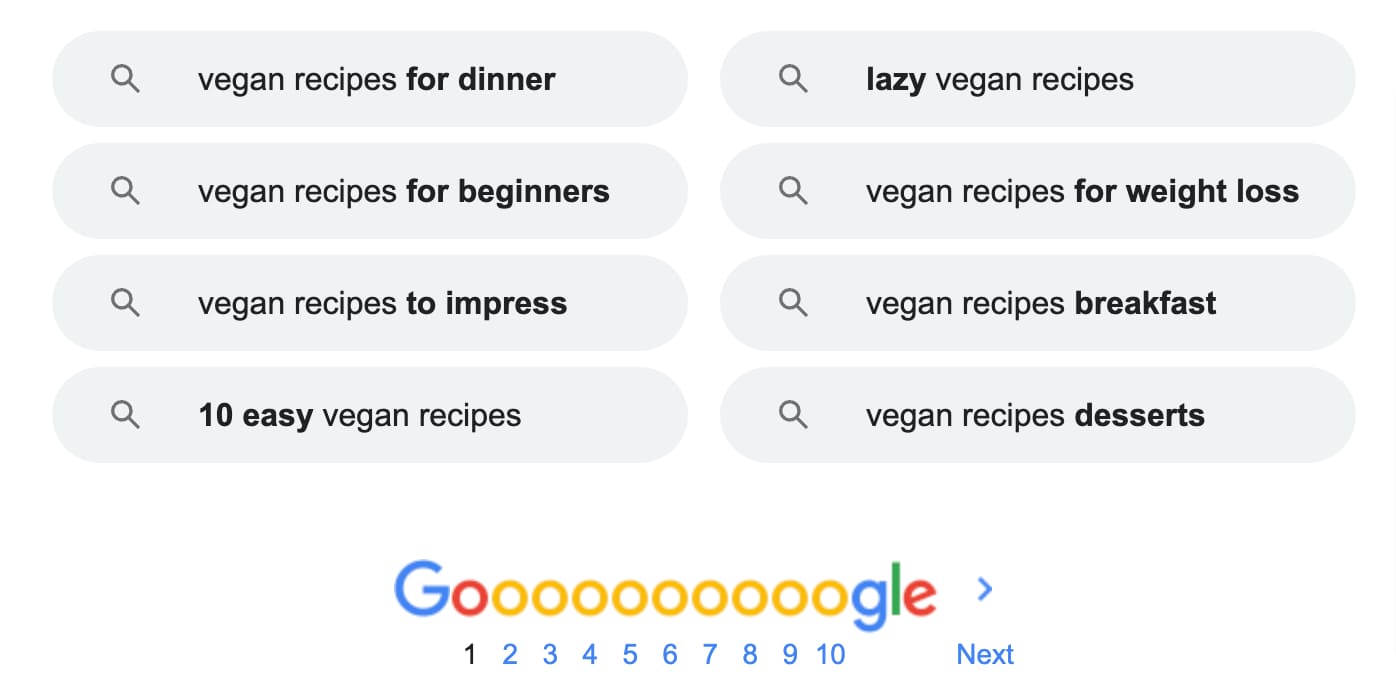
And, of course, keyword research tools will help me find ideas that Google won’t show.
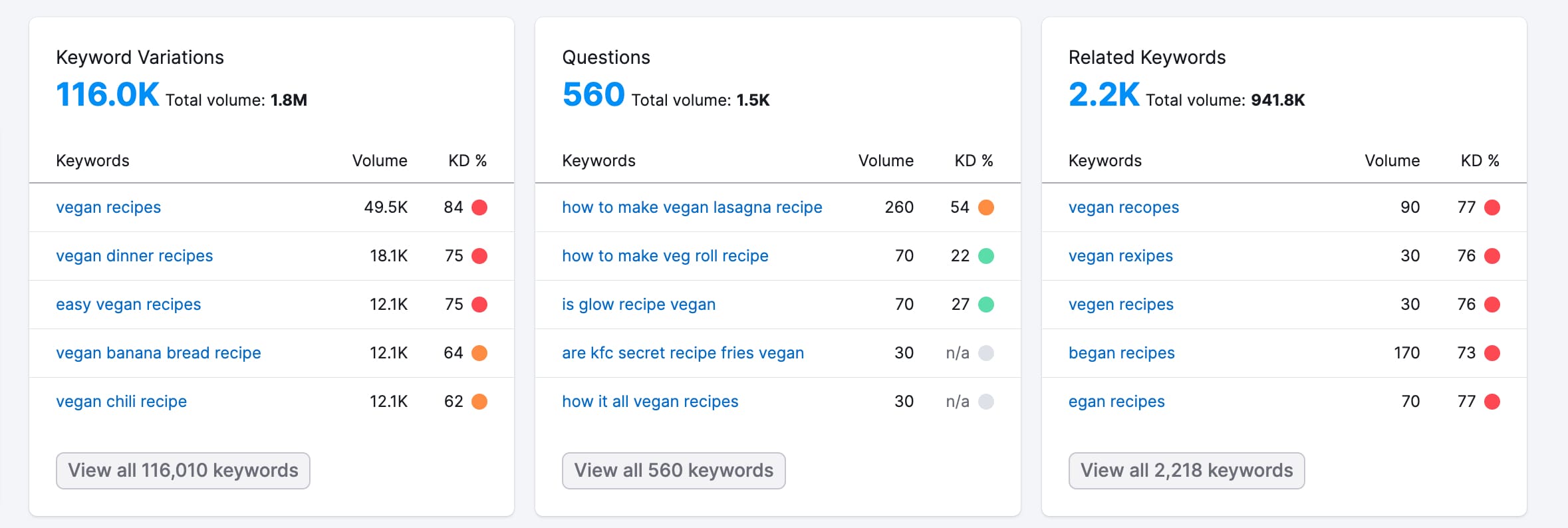
Keyword research is one of the critical ways to brainstorm new blog post ideas.
#7 Drive organic traffic
Of course, if you publish keyword-optimized blog posts, you can be sure to rank on Google and drive organic traffic.
But if you publish blog posts on any random topic you like without keyword research, you won’t rank on Google.
I say this because when I started as a blogger, the last thing I worried about was doing keyword research. I would publish blog posts that I wanted to. As a result, I never got any traffic from Google in my first year.
Another reason is staying consistent. Keyword research helps you stay focused on one niche. Google ranks sites quickly that publish content around one topic.
That’s why I always recommend bloggers to focus on publishing high-quality, SEO-friendly blog posts in one niche.
The faster you start ranking on Google, the quicker it trusts you.
Conclusion: Why is Keyword Research Important for SEO?
So these are some of the reasons why keyword research is essential for SEO.
Ideally, SEO starts with keyword research. The more you research, the more you learn about your niche, and the better content you publish to solve your audience’s needs.
But does all that mean not using keywords in your content at all?
Using keywords correctly is still required as you must tell search bots what your content is about, but you can’t stuff keywords anymore. Grab this SEO checklist to learn about the places you must use keywords.
Have you been using keywords in your blog posts? Which keyword research tool do you use?
More resources to check out:
I hope you found this post helpful. Follow me on Twitter, Facebook, and LinkedIn. Or why not subscribe to my newsletter and get blogging and writing tips straight to your inbox weekly?




